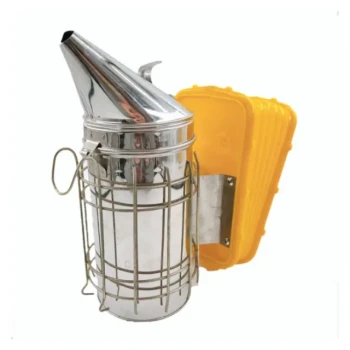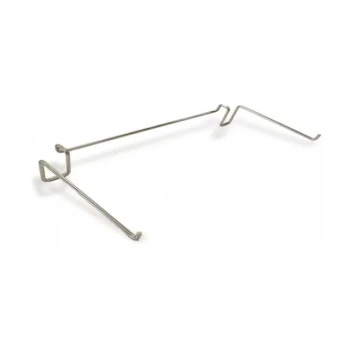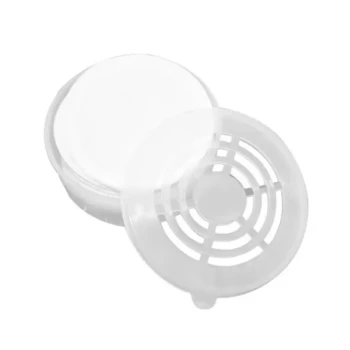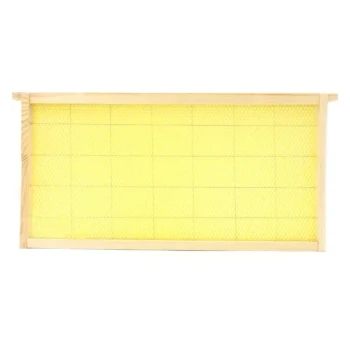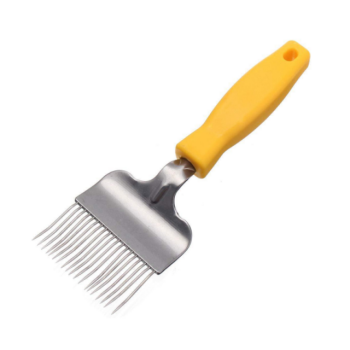Thick cotton fabric is essential in a beekeeping suit for two primary reasons: sting prevention and long-term durability. Its thickness and dense weave create a physical barrier that a bee's stinger struggles to penetrate, while the robust nature of the material ensures it can withstand the physical demands and frequent washings required in beekeeping.
The effectiveness of a bee suit is a direct trade-off between protection, comfort, and cost. While thick cotton offers exceptional sting resistance and durability at an affordable price, it does so at the expense of breathability, forcing beekeepers to balance absolute safety against comfort in warm conditions.
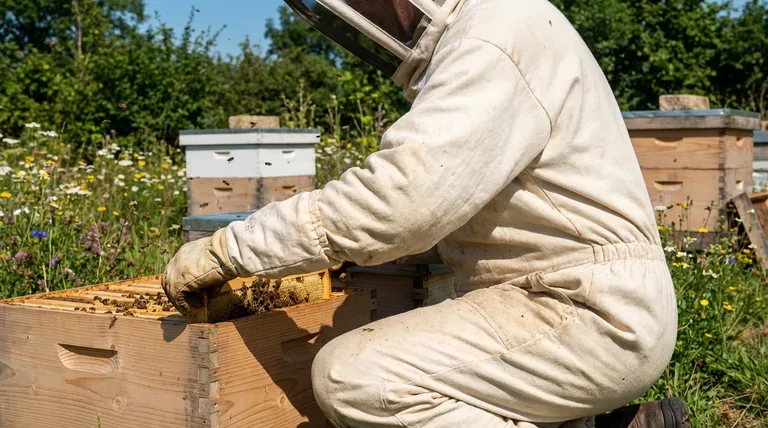
The Core Function: Sting Prevention
The most critical job of a bee suit is to prevent stings. The properties of thick cotton are uniquely suited to this task by defeating the bee's primary defense mechanism.
The Stinger Length Principle
A honey bee's stinger is typically between 1.5 to 3 millimeters long. A key principle of suit design is that the fabric must be thicker than the stinger is long. Thick cotton directly accomplishes this, creating a simple but effective physical barrier.
The Role of Weave Density
Beyond simple thickness, the tight, dense weave of high-quality cotton prevents a stinger from finding a path between the fibers. A loose weave, even in a thick material, could allow a stinger to slip through and make contact with the skin.
Layering and Looseness
Effective protection also relies on how the suit is worn. A loose-fitting cotton suit creates an additional air gap between the fabric and your skin, providing a crucial secondary layer of defense even if a determined bee manages to puncture the material itself.
Beyond Stings: Durability and Practicality
Beekeeping is a physical activity that places significant demands on your equipment. A suit's material must be able to endure more than just bee stings.
Resisting Wear and Tear
You will be kneeling, lifting heavy hive boxes, and brushing against rough wooden equipment. A thick cotton fabric is highly resistant to the abrasion, snags, and tears that are a daily reality in the apiary, ensuring a longer lifespan for your investment.
Washability and Pheromones
When a bee stings, it releases an alarm pheromone that signals a threat and can incite other bees to attack the same spot. It is crucial to wash your suit regularly to remove this pheromone. Cotton is exceptionally durable and holds up well to repeated machine washing.
Understanding the Trade-offs: Cotton vs. Alternatives
While thick cotton is a traditional and effective choice, it is not the only option. Understanding its drawbacks compared to modern alternatives is key to making an informed decision.
The Heat Factor
The primary disadvantage of thick cotton is its lack of breathability. The same dense weave that blocks stingers also traps heat and moisture, which can lead to discomfort and even heat exhaustion during summer inspections.
The Rise of Ventilated Suits
To solve the heat problem, modern ventilated suits have become popular. These are typically made of three layers of synthetic mesh. They don't rely on thickness but on space—the stinger is too short to cross the gap between the outer and inner layers. Their key advantage is superior airflow and comfort.
Poly-Cotton Blends
Many suits are made from a blend of polyester and cotton. These blends attempt to offer a compromise, often being lighter and more wrinkle-resistant than 100% cotton. However, they may offer slightly less sting resistance or breathability depending on the specific blend and weave.
Making the Right Choice for Your Goal
Your ideal suit material depends on your climate, budget, and the intensity of your beekeeping activities.
- If your primary focus is maximum protection on a budget: A well-made, 100% thick cotton suit is the most proven and cost-effective choice for new beekeepers.
- If you work in a hot and humid climate: The significant extra cost of a fully ventilated suit is a worthwhile investment in safety and comfort.
- If you need a durable, all-around suit for frequent use: A high-quality poly-cotton blend offers a good balance of durability, performance, and price.
Ultimately, understanding the material science behind your suit empowers you to work with your bees confidently and safely.
Summary Table:
| Feature | Benefit for Beekeepers |
|---|---|
| Sting Prevention | Thickness & dense weave create a barrier longer than a bee's stinger. |
| Durability | Withstands abrasion, snags, and frequent washing from daily apiary use. |
| Cost-Effectiveness | Provides maximum protection at an affordable price point. |
| Trade-off | Less breathable than modern ventilated suits, leading to potential heat buildup. |
Equip your commercial apiary or distribution business with the right protection. HONESTBEE supplies durable, high-performance beekeeping suits and equipment designed for the demands of professional beekeeping. Our wholesale-focused operations ensure you get reliable gear that protects your investment and your people. Contact HONESTBEE today for wholesale pricing and to discuss your equipment needs.
Visual Guide
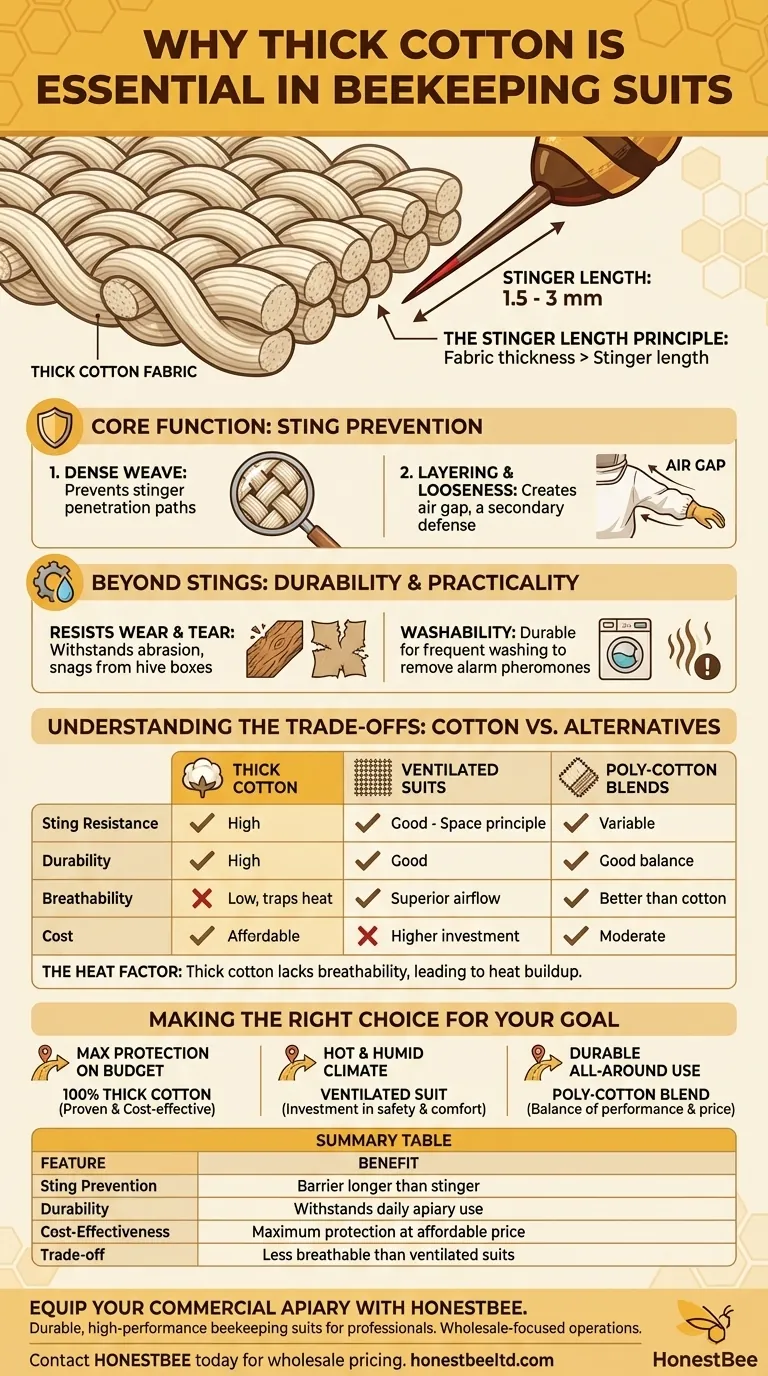
Related Products
- Wholesales Dadant Size Wooden Bee Hives for Beekeeping
- Yellow Plastic Bucket Pail Perch for Beekeeping
- Professional Insulated Plastic Bee Hives
- Long Langstroth Style Horizontal Top Bar Hive for Wholesale
- Professional Insulated Winter Hive Wrap for Beekeeping
People Also Ask
- Why is the use of professional protective clothing essential in apiary disinfection? Protect Your Health and Hives
- Why is high-quality personal protective equipment essential for sustainable beekeeping? Secure Your Apiary's Future
- Why is professional beekeeping protective equipment considered essential hardware in defensive regions? Secure Growth
- What is the recommendation for wearing beekeeping suits? Essential Protection for All Beekeepers
- What is recommended for beginners in beekeeping regarding protective clothing? A Complete Safety Guide for New Beekeepers
- What should be considered when choosing a bee suit for a child? Ensure Total Safety & Comfort for Young Beekeepers
- What is the practical benefit of integrated pockets in beekeeping jackets? Enhance Safety and Workflow Efficiency
- What are the specific requirements for the detergent used to wash beekeeping gear? Choose Bee-Safe, Fragrance-Free Soap







